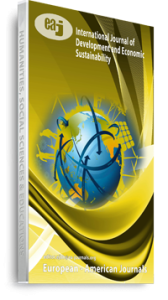Development economics have for several decades recognized the importance of the mobilization of domestic savings for economic growth in developing countries. However, saving level in Ethiopia is very low and little is known empirically about its patterns and determinants. Therefore, this study attempts to identify and analyze the main determinants of household saving in Ethiopia giving special emphasis to North Gondar zone on three selected districts i.e. Gondar, Dembia and Dabat using survey data collected from 604 sample households in August 2013. The results of the descriptive analyses shows that 54.1% of sample households practiced saving and the common reasons for households not to save are low income, inflation, low interest rate, cultural background, education, social affairs and unemployment. The planning and expenditure controlling habit of most respondents was also found minimal. Besides, the economic analyses shows that income, age, sex, marital status, forms of institutions used for saving and frequency of getting money are significant determinants of household savings in the study area. Based on these findings, we recommend that government policy intervention should focus on increasing the availability and accessibility of financial institutions, awareness creation and education on the importance saving and saving modalities, planning and expenditure controlling habit, socio-cultural saving barriers, increasing interest rate, and inflation and unemployment combating strategies to augment saving capacity, investment and then economic growth.
Keywords: Ethiopia, Household saving behaviors, North Gondar Zone, saving determinants

